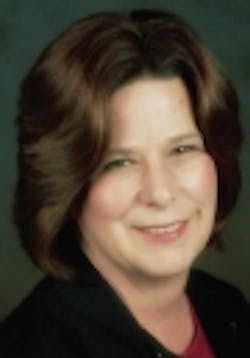How to be supportive
I returned to California with literature, samples, and the desire for the entire office to attend a course together on CAMBRA. While a fairly new acronym, the idea of applying risk assessment and a medical model approach to dentistry was a topic of discussion during my university years oh so long ago. The concept is now a reality. I can't be the only one excited about this.
Speakers, exhibitors, and mentors are an invaluable source of education, and without them it would be very difficult to stay current. Yet, my ah-ha moment at UOR this year came from a conversation with a colleague that started off, oddly enough, about shoes.
I met this fellow dental hygienist in Dallas at the 2004 ADHA meeting during my quiet, fly-on-the-wall phase. She asked me questions about my career and goals that I was not prepared to answer, which led me to ponder my role in the profession. She was, beyond a doubt, one of the first people to challenge me to make a difference and support my professional organization. While I have many mentors who have encouraged me along the way, this friend quietly and firmly challenged me to do something and step up to be part of the solution.
Our conversation this year turned to the issue of dental hygienists and our perceived inability to be supportive of each other. Since we are such perfectionists and demand so much from ourselves, we push those expectations onto others in similar roles. As a group, we seem to think that our way is the best and only way to accomplish a task – those who choose to veer from that path are judged accordingly. This is a generalization that does not apply to all individuals, but I can see a pattern among the whole.
Years ago, a mentor and friend was telling me about buying a very large and expensive piece of equipment. She allowed the doctor to use the equipment when she was not in the office, as long as he covered the cost of materials and operation. She even allowed visiting dental hygienists to come by and experience the high level of care possible with this added tool. I remarked that if I had spent over $3,000 for something, I wasn't sure I could share so readily. Her response was, "If learning and growth cannot be shared, what good is it?" She is an amazing example of supporting the profession and each other.
Being supportive of others might include attending a course for the second or third time because the opportunity is there. It might include handing out literature or sample bags for another speaker. Support definitely means giving praise where due and offering gentle suggestions when necessary. This might mean attending meetings even when it doesn't fit your schedule to cheer on or lend a shoulder to a colleague in need. Being supportive means joining the professional organization even if you do not have time to volunteer.
I can't join every organization available, nor should any of us feel obligated to do so. However, we can still speak positively of those who do give the extra time and effort to groups promoting our professional ideals. Financially, we can't give money to every good cause with an oral health connection – but we can speak positively about those involved and encourage others to give.
The only thing support cannot include is negative words and judgmental attitudes. The best way to measure your ability to support others is to do an internal assessment. If you can smile at your actions, job well done!
Lory Laughter, RDH, BS, practices clinically in Napa, Calif. She is owner of Dental IQ, a business responsible for the Annual Napa Dental Experience. Lory combines her love for travel with speaking nationally on a variety of topics.